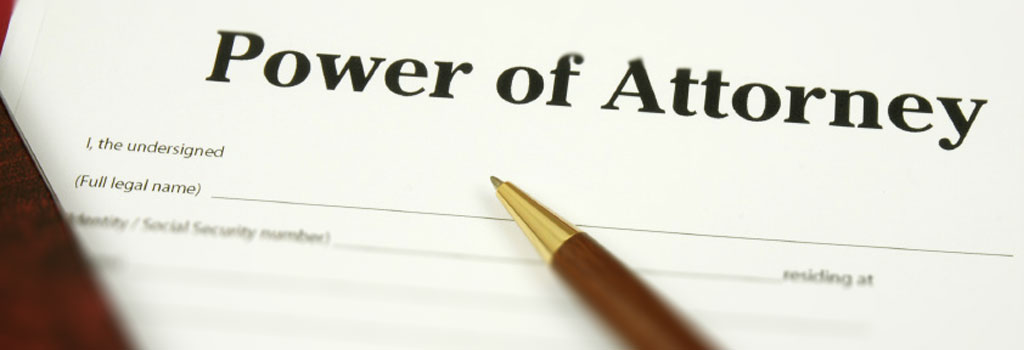What is the big difference?
A Power of Attorney is as important for life planning as making a Will.
Many people prepare a Will but do not give the same consideration to appointing an attorney until it is too late.
Appointing an attorney gives your attorney the legal authority to look after your financial affairs on your behalf.
You can appoint an attorney to act for you in a variety of circumstances such as an extended interstate or overseas trip, or for a time when you are no longer able to manage your affairs.
Calvados + Woolf Lawyers is able to assist you in making this important decision and we can advise you as to which attorney service that suits your needs and draft these important documents for you .
There are two types of power of attorney:
• General Power of Attorney
• Enduring Power of Attorney.
Both types involve a formal agreement giving someone else the power to make decisions on your behalf. It works like this:
1. you sign a form giving power of attorney to the person of your choice
2. you specify the types of decisions that the person you choose can make
3. as your attorney, they can then act on your behalf if necessary.
The decisions that your attorney makes for you have the same legal force as if you had made them yourself.
A power of attorney is also different to a Will. Making a Will allows you to state how you want your assets to be distributed after your death. A Will also allows you to choose an Executor who will be responsible for making sure your wishes are met.
General Power of Attorney
A General Power of Attorney involves you formally giving someone else the power to make financial decisions only, on your behalf, for a specific period/event.
A General Power of Attorney is used while you have capacity – that is, you are still able to make your own decisions.
The General Power of Attorney ends when you lose capacity – that is, you are not able to make your own decisions. For example, you might choose to appoint an attorney if you were going overseas and needed someone else to sell your house or pay your bills.
Enduring Power of Attorney
An enduring power of attorney is a legal document that gives someone else the power to make decisions for you and act on your behalf, even after you lose capacity to make decisions for yourself.
An Enduring Power of Attorney can cover financial issues and personal issues (including your medical care and living arrangements).
To make an Enduring Power of Attorney you must be an adult capable of making your own personal and financial decisions.
Having the capacity to make decisions means that you can:
• understand the nature and effect of a decision
• freely and voluntarily make those decisions; and
• communicate the decisions in some way.
You also need to understand the nature and effect of an Enduring Power of Attorney including the contents of the document, consequences of preparing the document and when the power begins.
Contact Marie Sheehy at Calvados + Woolf Lawyers for advice on Powers of Attorney, Wills and Estate matters.




Comments are closed